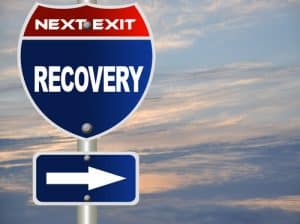5 Things You Need to Do If You Are Injured on the Job While Driving a Truck
April 26, 2018
What to Do after You’re Injured on the Job Driving a Truck
No matter how careful, attentive and experienced truckers may be, accidents can still happen. When they do, knowing what to do in the aftermath can be crucial to helping truckers protect their rights and a potential claim for compensation.
To help truckers avoid missteps that could comprise their financial recovery after accident, the following shares the most important steps truckers should take whenever they are injured in work-related crashes.
If you or a loved one is a truck driver who has been injured on the job, don’t hesitate to contact an experienced lawyer at the Amaro Law Firm to find out more about your legal options for financial recovery. We are ready to help you pursue all available legal remedies and set your claim(s) up for successful outcomes.
Are You a Trucker Who Was Hurt in a Job-Related Crash?
Call (713) 352-7975, Text (281) 612-8024 or Email Our Firm
for Your FREE Case Evaluation
During a FREE, no obligations consultation, we will review your situation and explain your rights and legal options. Free virtual and mobile consultations are available to anyone who cannot visit our office.
What Truckers Should Do after a Work-Related Crash: 5 Key Steps to Take
Here are the essential things for truckers to do after a wreck (whenever possible):
- Call 911, secure the scene and get immediate medical attention – Call police so emergency responders are dispatched to the accident scene as soon as possible. As you wait for them to arrive, turn on your hazard lights and put reflectors (or flares) out, ideally 10 and 100 feet behind the crash site to alert other drivers. Do not move the vehicles, and do not leave the scene, unless or until instructed to do so by police.As you wait for police to carry out their investigation (the details of which will be documented in a police accident report), let emergency medical professionals check you out. This is important to identifying any major injuries you may have sustained (but may not be aware of due to shock or adrenaline) and to making sure the injuries are promptly treated and documented right after the crash.
- Take extensive pictures of the accident scene – Take a lot of pictures of the accident scene and the wreckage, ideally using a time-stamp feature. As you do this, be sure to take photos of all sides of the truck and other involved. When possible, include items that can provide perspective and clarify the size or extent of a certain damaged features.Additionally, try to capture pictures of any crash debris near the site, tire tread marks on the road, visible injuries and the accident scene as a whole (via a panoramic photo). A picture of the entire accident scene may capture witnesses and/or other evidence that may have been overlooked in the immediate aftermath of the crash.
- Report the accident to the motor carrier – Contact the trucking company to report the accident as soon as possible. When doing this, stick to the facts of the crash, do not speculate and do not admit fault or try to defend yourself. The reports you make to the motor carrier (as well as to the police and the insurance company) may be used in a later truck accident claim. So, avoid saying anything that could be used to blame you for the crash and that, consequently, could sabotage a future claim for recovery.
- Gather witness information – Try to collect the name(s) and contact information for all witnesses to the crash. As you do this, stay calm and focused, try to take a picture of each witness’ license plate and avoid doing anything that could be perceived as aggressive or incriminating. Your demeanor after the crash can be observed by those on site, and it can be included in their statements and used in a future claim.If the crash has been particularly distressing, skip this step, leaving it to police to gather this information. You can request a copy of the police report later to collect the witness information police have gathered.
- Preserve your evidence – Any evidence you have collected from the accident scene, as well as crash-related documents you receive after the crash, should be kept in a safe place. This can include everything from your driver logs, vehicle inspection reports and accident scene photos to documents from your employer, doctors and/or the insurance company. All of your evidence can be pivotal to establishing liability and the damages to which you may be entitled.
While all of these steps can be crucial to take after a truck wreck, contacting the Amaro Law Firm can be the single most important step injured truckers take. That’s because our lawyers can help truckers who have been hurt in crashes:
- Determine and pursue their legal options for financial recovery
- Set their claims up for any possible recovery.
While we know compensation may never erase the profound impacts of serious truck wrecks, we also know that these claims and recoveries can be the key to restoring lives.
Get Essential Answers & Advocacy: Contact a Truck & 18 Wheeler Accident Attorney at the Amaro Law Firm
If you or a loved one is a truck driver who has been harmed in any type of work accident, you can turn to an experienced truck accident attorney at the Amaro Law Firm for effective advocacy in the pursuit of justice and compensation.
Call (713) 352-7975, text (281) 612-8024 or email our firm for your FREE, no obligations consultation.
The Amaro Law Firm’s record of quality representation and success in truck accident cases has earned us exceptional testimonials from former clients, as well as 5-star ratings on Google and Facebook.
